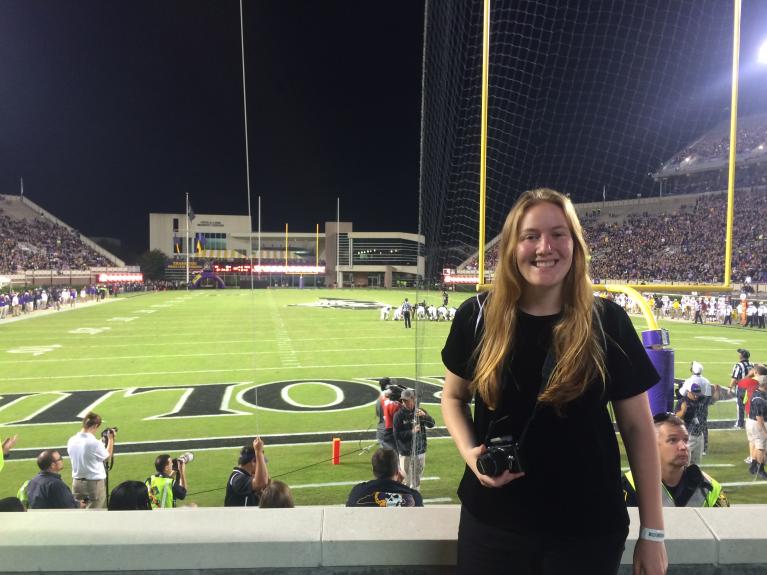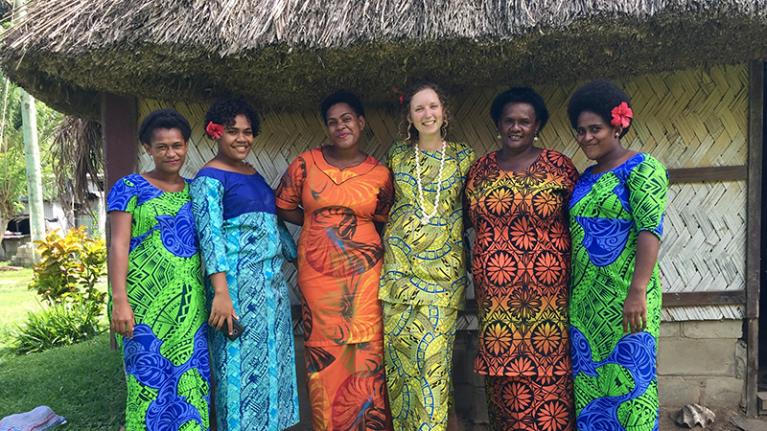It's important to consider the financial costs of studying overseas. These costs vary depending on the destination and your lifestyle.
Study costs on exchange
Domestic students
Semester exchange
You will continue to pay tuition to VU while on exchange. If you are a Commonwealth Supported Place (CSP) student, fees are added to your HECS-HELP loan and charged at the domestic-student tuition-fee rate. You do not pay any tuition fees to your host university.
Study tours
When undertaking a study tour you will be enrolled into a VU unit and will incur the usual tuition fee (whether through a loan or paying upfront). Most study tours also have a fee for travel costs, accommodation and additional activities. This fee will need to be paid upfront before departure.
Short programs
Tuition fees for short programs vary. For those that are offered on a fee-paying basis by another institution, all fees are paid directly to that institution. If the program falls within an exchange agreement with VU, you will incur fees as you would when studying at VU (deferred or paid upfront). In both cases, there may also be fees for accommodation and non-academic program activities. Short programs generally do not provide group-flight options.
International students
International student fees are paid to VU, charged at the VU international student fee rate.

Nicholas Decker, Leeds Beckett University, UK.
Personal costs
Personal costs vary according to your destination, but you will need to budget for:
- travel costs: airfares and surface travel to and from your study destination
- accommodation: whether you stay on-campus, in a homestay, or in private accommodation, you will usually need to pay for it
- living costs: your daily expenses
- visa and passport fees: you will need a passport and for many study destinations you will require a visa, particularly if you are enrolling as an exchange student
- study costs: you may require textbooks, online materials, or other study equipment
- insurance: the University provides some coverage, but you may require additional insurance coverage, particularly if you plan to travel before or after your study.

Arabella Mentor, East Carolina University, USA.
Funding available
There are a number of ways you can fund your overseas study experience including grants, loans and government scholarships.
OS-HELP loans
This loan scheme offers a cash payment loan from the Australian Government that is added to your HECS-HELP debt. To be eligible you must meet the following criteria:
- Commonwealth-supported Australian citizen, or permanent humanitarian visa holder
- have completed eight units in your degree prior to studying overseas
- have at least one unit remaining in your degree upon returning from overseas.
Full eligibility criteria are outlined on the OS-HELP website.
The 2023 OS-HELP loan amounts are:
- non-Asian destinations: up to $7348
- Asian destinations: up to $8817
- a supplementary loan for language study undertaken in preparation for your overseas study in Asia of up to $1133/$1172.
Students may receive one loan per six-month study period and can access a total of two OS‑HELP loans over their lifetime. A student's overseas study must take place within the relevant six-month study period of the OS-HELP loan.
Youth Allowance/Austudy
If you currently receive Youth Allowance or Austudy you may be eligible to continue receiving payments while you study overseas.
You will need to provide evidence that you will be studying full-time on an approved overseas program that will be credited towards your degree. Victoria Abroad will provide a letter to assist.
Government scholarships
Victoria Abroad receives additional funding from the Australian Government to support overseas study. If you apply for the following exchange study opportunities, you will be automatically considered for the funding:
Semester 1, 2023 exchange
- Japan: 2 x $5,000 New Colombo Plan semester grant
- South Korea: 2 x $5,000 New Colombo Plan semester grant
- Fiji: 5 x $6,000 New Colombo Plan semester grant
Other than the above funding, the Australian Government also runs the New Colombo Plan (NCP) Scholarship Program to give Australian undergraduate students the opportunity to live, work and study in the Indo-Pacific region for up to 19 months. The program provides students with funding to undertake semester-based study, language training and internship or mentorship in one of 40 participating Indo-Pacific locations. Internal expressions of interest open in March every year for overseas study in the subsequent year.

Mia Dunphy, University of the South Pacific, Fiji.

